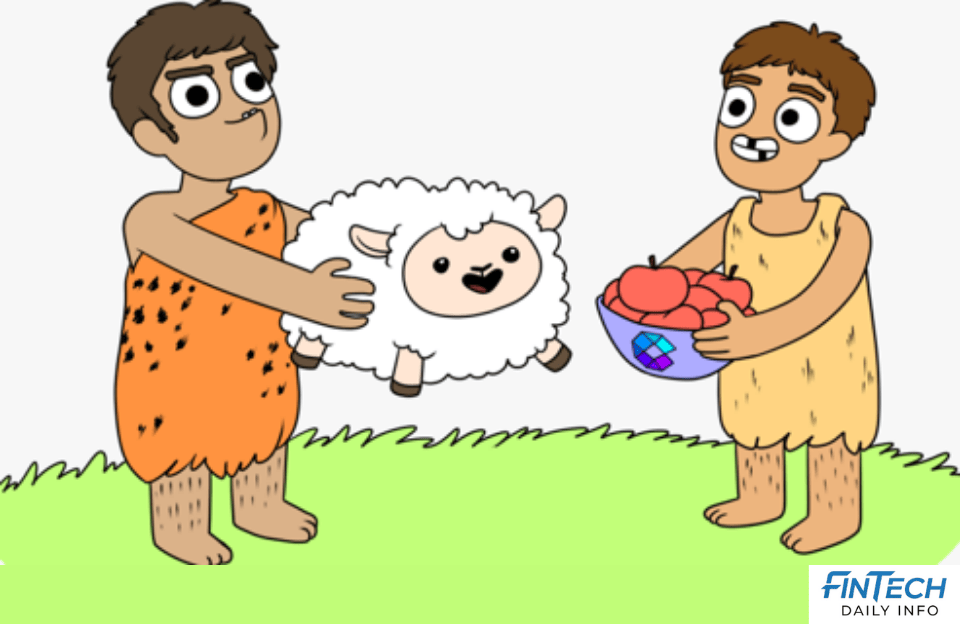In the world of money and investment, there are many terms people often hear but don’t fully understand. One of them is commodity money. Another big topic is why is it risky to invest in a commodity? In this article, we will explain both of these questions in a simple way. We will also talk about what a commodity means, and give examples of a commodity in which someone invests.
Key Takeaways
- What does commodity mean?
A commodity is a basic good, like oil, gold, or wheat, that is used in trade and production. - What is commodity money?
Commodity money is money made from valuable materials like gold or silver, which can be used for trade and also have real-world value. - A commodity in which someone invests might include:
Gold, silver, oil, coffee, wheat, and other raw materials or natural resources. - Why is it risky to invest in a commodity?
Because prices are unstable, there’s no regular income, and outside events like war or weather can affect your investment. - Safer ways to invest in commodities include using ETFs, starting small, and diversifying your portfolio.
What Does Commodity Mean?
Before we explain anything else, let’s answer this basic question: what does commodity mean?
A commodity is a basic good that people use or trade. Commodities are usually raw materials or agricultural products. Some common examples are:
- Gold
- Silver
- Oil
- Wheat
- Coffee
- Corn
Commodities are often the building blocks of the economy. Companies use them to produce finished goods. These items can be traded on the market and are bought and sold by people, companies, and even countries.
What Is Commodity Money?
Now that we know what a commodity is, let’s answer: what is commodity money?
Commodity money is money that has value in itself and can also be used for trading. This means it is both useful as a good and as a way to buy things. In the past, people used gold, silver, salt, or even cattle as money. These items were valuable, so people accepted them in exchange for goods and services.
For example, a gold coin is a good example of commodity money. You could use it to buy something, and the coin itself still had value because it was made of gold. It was not just a paper promise—it was real, valuable material.
How Is Commodity Money Different from Modern Money?
Today, we use fiat money. Fiat money is paper or digital money like dollars, pounds, or euros. It has no value by itself, but it is accepted because governments say it is legal for buying and selling. You can’t eat a dollar bill or use it to make something, but everyone accepts it.
Commodity money, on the other hand, has real value. You can melt gold or use salt. That’s why in the old days, people trusted commodity money more than paper money.
But there’s a catch—commodity money is not widely used anymore. It is now more of a historical or investment topic.
A Commodity in Which Someone Invests Might Include…
These days, when we talk about a commodity in which someone invests, we mean the types of raw materials people buy hoping their prices will go up. This includes:
- Gold: Often called a “safe haven” investment.
- Oil: A key resource for energy and industry.
- Silver and Platinum: Used in both jewelry and industries.
- Agricultural Products: Like wheat, corn, and coffee.
People invest in these commodities because they believe their prices will rise in the future. Some buy physical goods (like gold bars), while others invest through contracts or online markets.
Why Is It Risky to Invest in a Commodity?
Now let’s answer the important question: why is it risky to invest in a commodity?
Here are some simple reasons:
1. Price Fluctuations
Commodity prices change often—and sometimes fast. The price of oil, for example, can go up or down based on world events like wars or political problems. Weather can affect crops, making food commodities very unstable too.
One day you may make a profit, and the next day you may face a big loss. This makes it hard to predict returns.
2. No Regular Income
Commodities do not pay interest or dividends. If you invest in gold, it just sits there—it doesn’t grow unless its price rises. Unlike stocks or rental property, there’s no regular income.
3. Storage and Security Issues
If you buy physical commodities like gold or silver, you need to store them safely. That could mean renting a safe deposit box or installing security systems, which adds extra cost.
4. Global Market Risks
Commodities are traded globally. Things that happen in other countries can affect prices. A flood in Brazil could raise coffee prices. A war in the Middle East could spike oil costs. You cannot control these events.
5. Speculation and Volatility
Many people trade commodities only to make quick profits. This causes prices to move up and down wildly. These short-term trades make the market unstable.
So, while commodities can offer big rewards, they also carry big risks. That’s why experts say only experienced investors—or those with proper guidance—should invest in them.
How to Invest in Commodities Safely
Even though it is risky, some people still want to invest in commodities. Here are a few safer ways to do it:
1. Use ETFs or Mutual Funds
Instead of buying the actual commodity, you can invest in a fund that follows the price of the commodity. This is easier and safer for beginners.
2. Diversify Your Portfolio
Don’t put all your money into one commodity. Spread your money across different types of investments. That way, if one goes down, others may stay up.
3. Do Proper Research
Before you invest, learn as much as you can. Understand the factors that affect the prices of the commodity you’re interested in.
4. Start Small
Begin with a small amount and see how the market works. You can increase your investment once you feel more confident.
Final Thoughts
So, what is commodity money? It is a type of money that has real, physical value—like gold or silver—that people used in the past to trade. It’s no longer common today but still plays a role in investing.
What does commodity mean? It’s a basic good—like oil, wheat, or gold—that people use and trade.
And why is it risky to invest in a commodity? Because prices can change fast, you don’t earn regular income, and global events can affect your investment. A commodity in which someone invests might include gold, oil, silver, or crops—and while these can make money, they can also lead to big losses.
Investing in commodities can be exciting, but it’s not for everyone. If you want to try, start slow, do your homework, and never invest more than you can afford to lose.
FQAs
1. What is the difference between commodity money and fiat money?
Commodity money has real value (like gold), while fiat money (like paper money) has value because the government declares it legal for payments.
2. Can I still use commodity money today?
No, most modern economies use fiat money. Commodity money is no longer used for everyday purchases but may still hold investment value.
3. Is gold a good investment for beginners?
Gold can be a safer commodity compared to others, but beginners should invest carefully and consider using gold ETFs instead of buying physical gold.
4. How do global events affect commodity prices?
Wars, natural disasters, political instability, and even trade policies can quickly change the price of commodities like oil, wheat, or metals.
5. Do commodities pay interest or dividends?
No. Commodities don’t generate income unless their price increases and you sell them for a profit.
6. Can I lose money investing in commodities?
Yes. Because prices can drop suddenly due to factors beyond your control, investing in commodities comes with a high level of risk.
Mariam holds an MS in Sociology and brings a sharp, people-centered perspective to her writing. She contributes to multiple websites, covering business, current news, and trending topics with insight and creativity that connects with readers.


